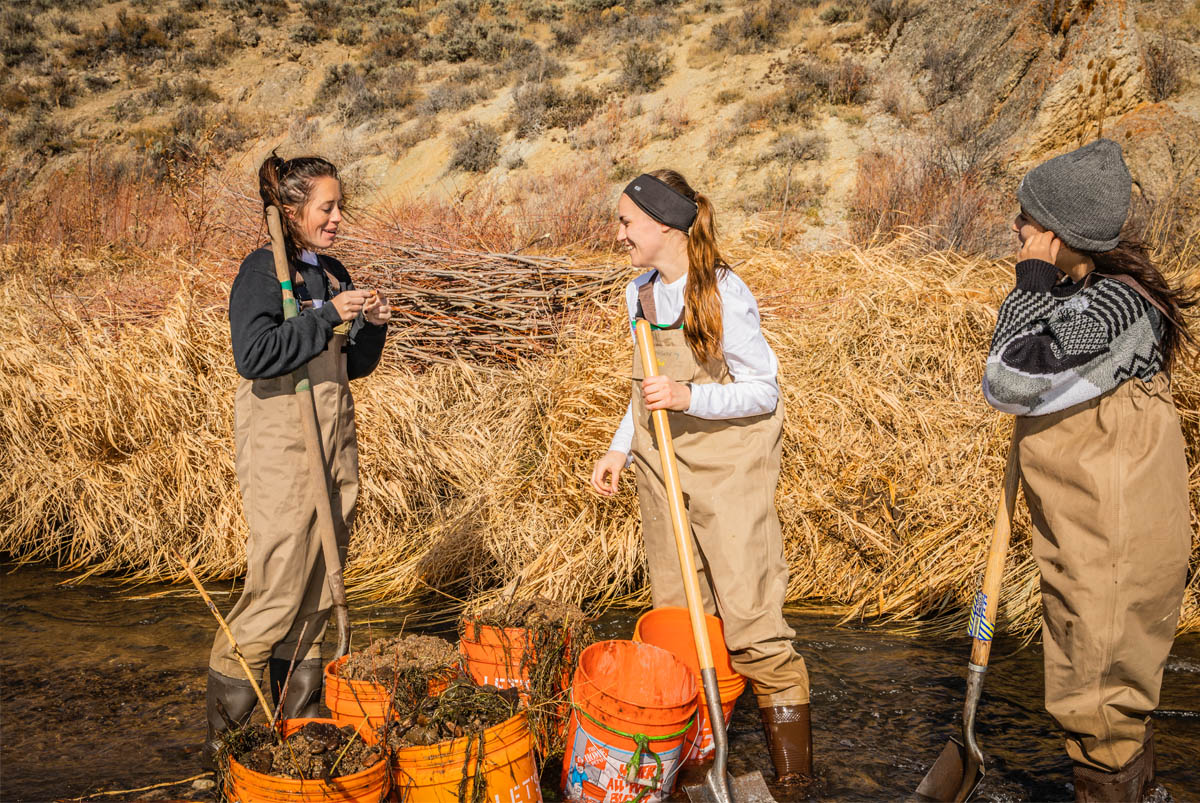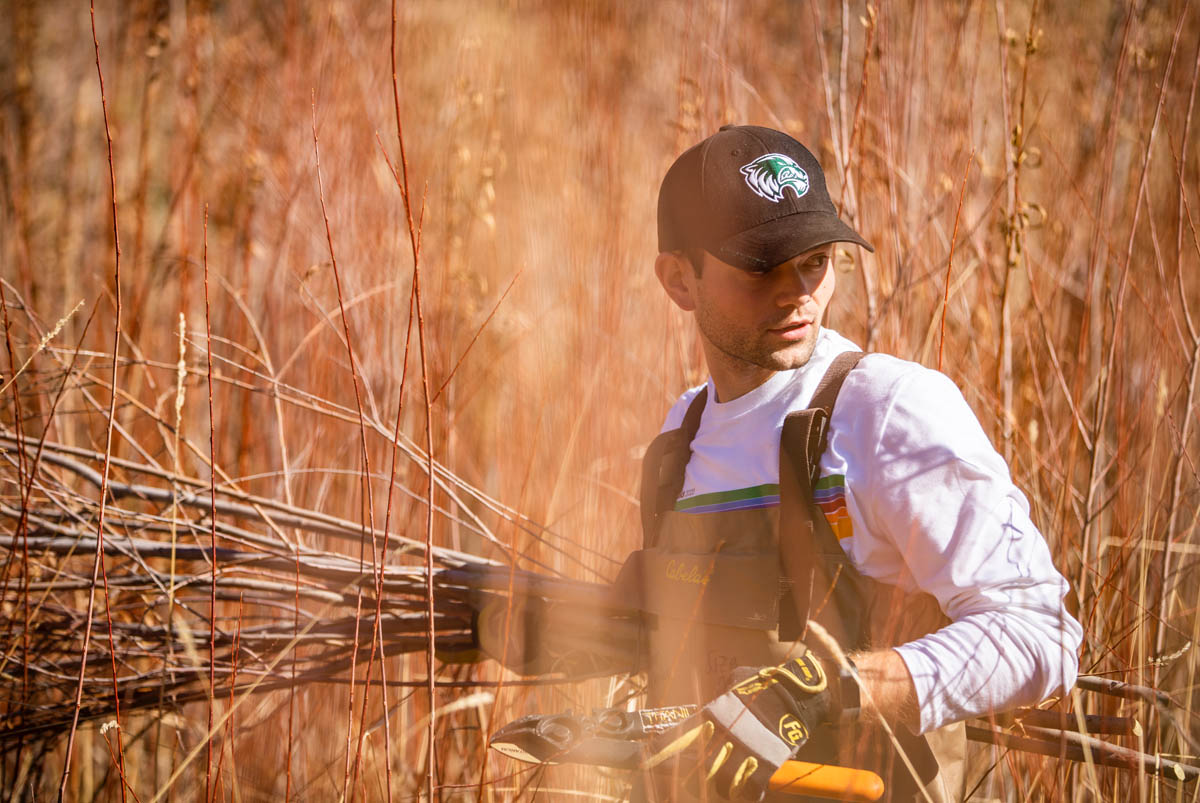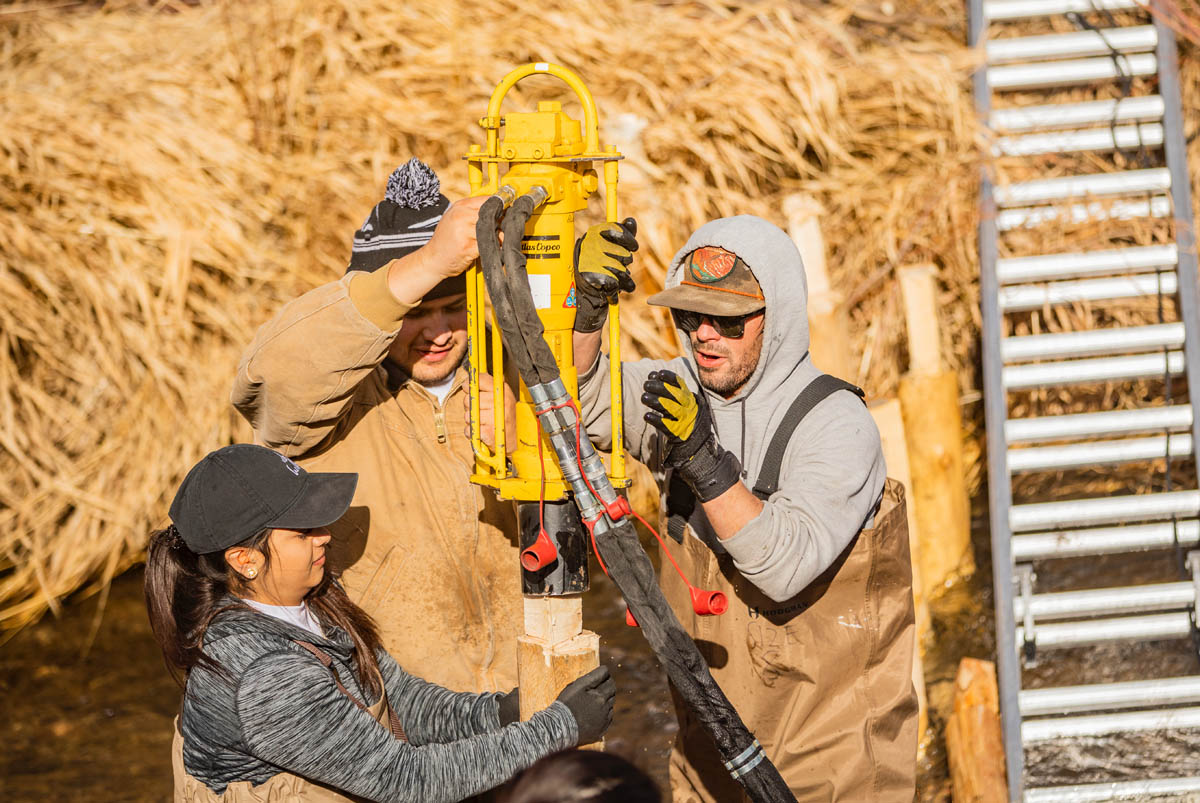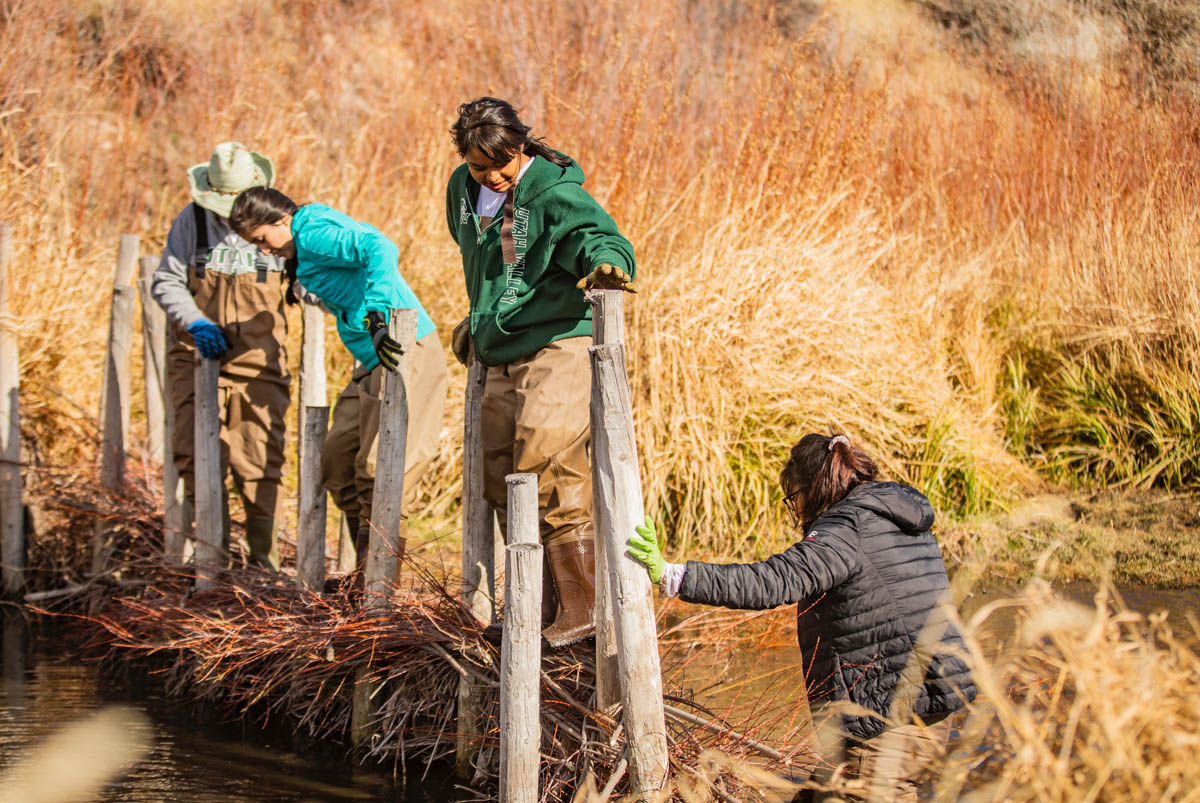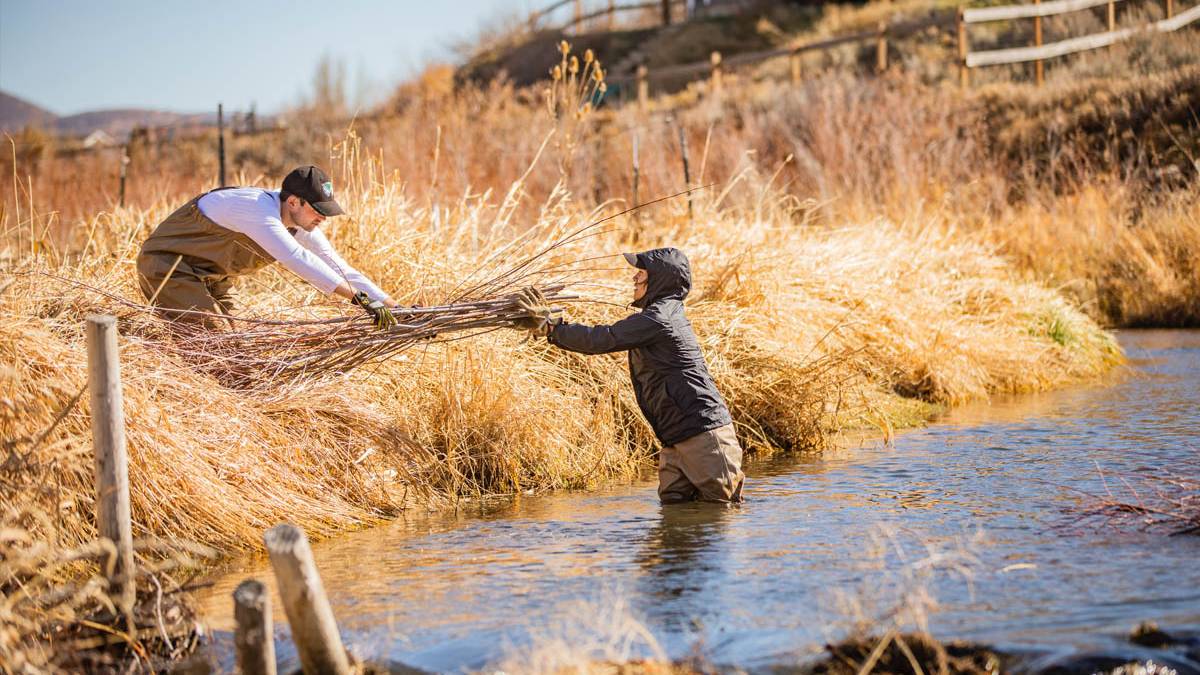
After full days of classes, tests, homework, labs, group projects, extracurricular activities, and work, every student looks forward to a few days off. However, UVU has a special group of students that want to make an impact even during their weekends and holidays.
Recently, a group of UVU students from the Center for Social Impact spent their weekend in waders as part of the Alternative Breaks program. In late Oct. these students volunteered their time to the Swaner Preserve and EcoCenter in Park City, Utah. One of the Swaner EcoCenter’s projects is to reverse wetlands damage due to farming that dates back to the 19th century.
In order to help restore the natural ecosystem in Park City, the EcoCenter is working to create an environment that invites native animals back into the wetlands. During the weekend, UVU students gathered natural materials, and they created and restored four artificial beaver dams.
“It was cool, because we saw a few natural beaver dams that were already being built,” said Kelton Burns, student coordinator for Alternative Breaks. “This means that beavers have started moving back into the habitat and other animals will soon follow.”
Along with the benefits to the environment, restoring the wetlands will have a major financial impact on Park City and its residents.
“From leading this alternative break, I learned more of the importance of habitat preservation and restoration,” said Burns. “Wetlands work to filter water –– something that Park City has been doing artificially since Manifest Destiny. As the wetland we worked on is restored, Park City will no longer need to artificially filter its water which will save them millions of dollars.
While this alternative break has an impact that’s geographically close to home, many of the upcoming alternative breaks will take students out of state and even out of the country. No matter where the students go, they are sure to gain just as much as they give.
“At UVU, an alternative break is a trip where students get to engage with a social problem through one or more of the six pathways to social impact,” said Marissa Getts, learning coordinator for the Center for Social Impact. “We carefully curate each of our trips to help students develop empathy, examine their assumptions, explore social problems outside of Utah Valley, and develop patterns of involvement in their own communities.”
Alternative breaks are offered a few times a year — one weekend during fall semester, during spring break, and every other summer. Upcoming alternative breaks for 2020 and the social issues they address include:
March 15-21, 2020
Sustainable Cities – San Diego, California
Homelessness – Portland, Oregon
Indigenous Rights – Navajo Nation in San Juan County, Utah
Youth Mentoring – Redwoods National Forest, California
May-June (dates TBA), 2020
International Social Impact – Marrakech & Ait Bouguemez, Morocco
“Through Alternative Breaks, I’ve also learned how easy and accessible it is for students to get involved in social impact,” said Burns. “We don’t need to reinvent the wheel to create social impact because we can all get involved with organizations that are already doing a great job at addressing social issues.”
